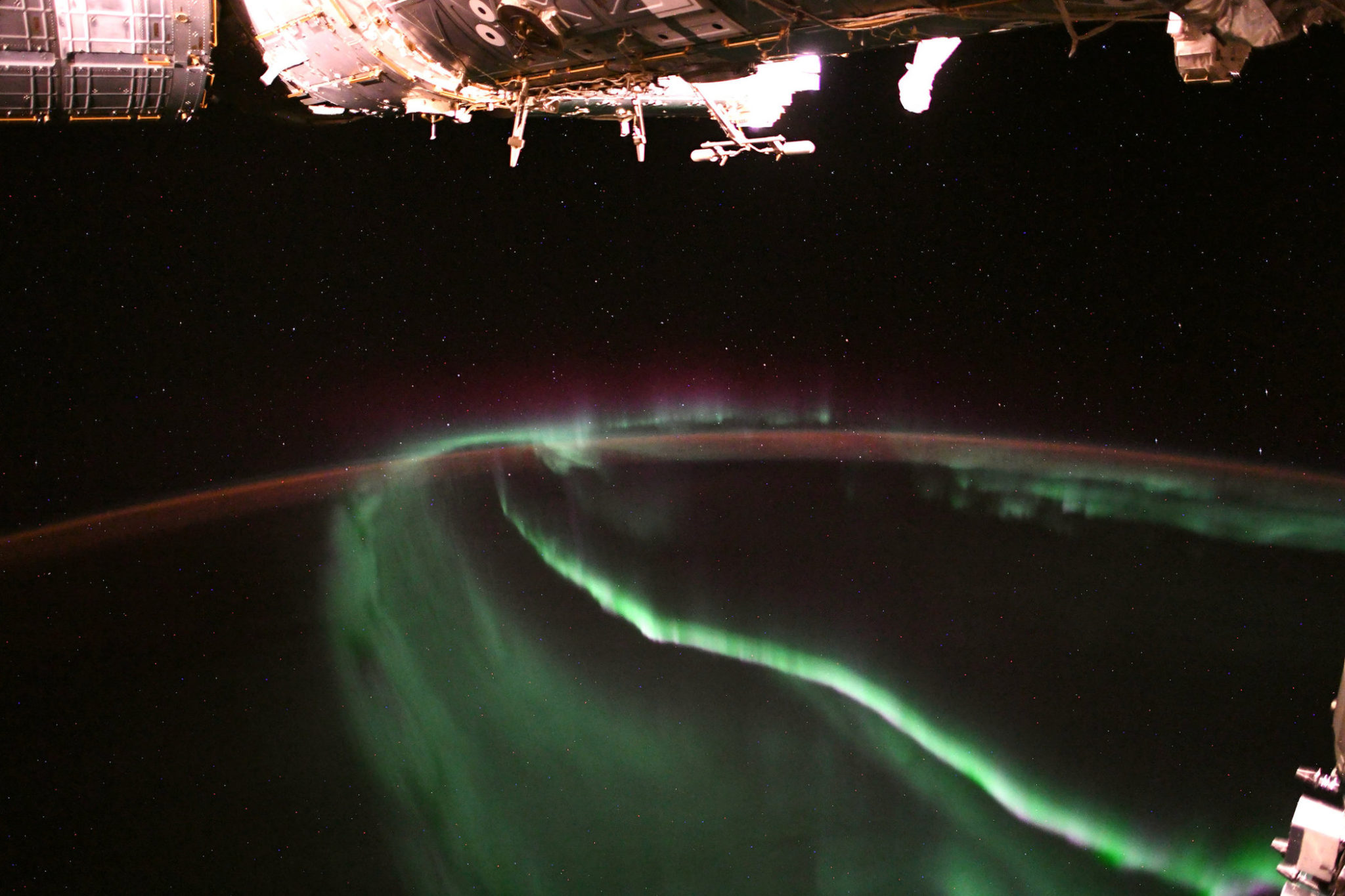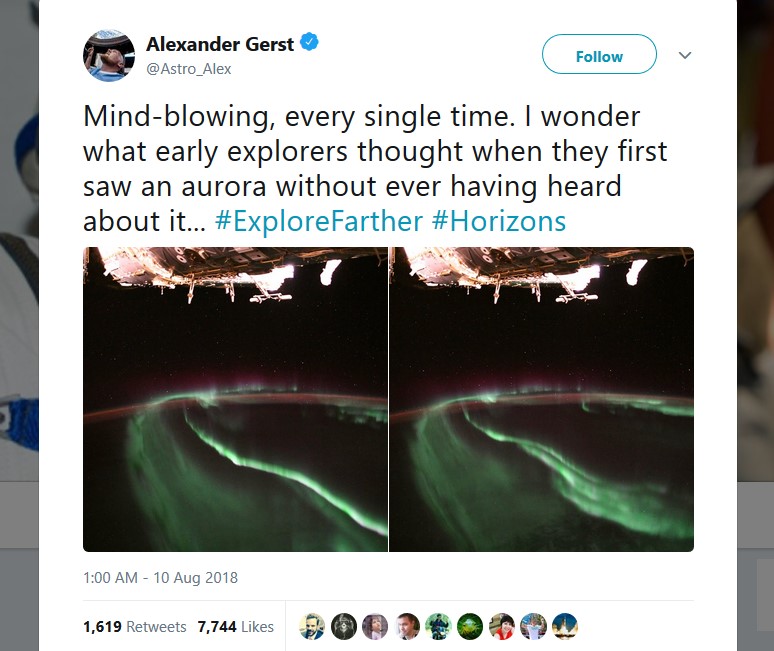Wonder How Auroras Look From Space? Here’s An Astronaut’s Tweet

Not many people can say they’ve been lucky to have seen the auroras in the sky. However, living at the International Space Station, astronauts get to look at Earth from above, and their view is one of a kind!
The beautiful phenomenon was caught on camera by the astronaut Alexander Gerst from the European Space Agency. He’s been on the ship since June for his second trip to space. On 10 August he shared on twitter amazing photos of the auroras seen from the ISS.
In the post accompanied by the photos, he wrote:
“Mind-blowing, every single time. I wonder what early explorers thought when they first saw an aurora without ever having heard about it…”
Auroras, or the northern and southern lights, are a phenomenon which, according to NASA, result from charged particles that stream out of the sun and hit the Earth’s atmosphere. The particles interact with molecules of oxygen and nitrogen and produce the amazing light. These green waves can be seen dancing near the poles.
The Beautiful and Dangerous Side of Auroras
The auroras are astonishing, but they also have negative consequences. The astronauts’ health can be put at risk, and they can also damage satellites that orbit the planet and even cause blackouts in the power grids.
With this in mind, NASA has been working on a probe that can study these charged particles which leave the sun and move towards us. They launched the Parker Solar Probe on 12 August, and later this year it will start getting closer to the Sun to study its corona. Parker will help scientists understand and predict when the sun will send more similar waves that create these beautiful auroras.
Perhaps it will tell scientists when we can pack our backs to check out the next auroras!

0 comments